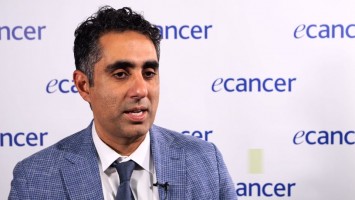ASCO 2011 Annual Meeting, 3—7 June 2011, Chicago
Association of diabetes and cancer epidemiology
Dr Lorraine Lipscombe – University of Toronto, Canada
I was talking about the emerging evidence that diabetes may be a risk factor for several different types of cancer and what the reasons might be for why it might be a risk factor. There are several hypotheses: first of all there have been many, many studies that have now demonstrated that patients who have predominantly type 2 diabetes have a higher risk of many different types of cancers including cancers of the liver, the pancreas, endometrium, breast, colorectal cancers, not all of them but many of them. Some of the reasons that have been hypothesised include the fact that people with diabetes have high blood glucose levels and glucose is a fuel for cancer, so is that mediating the risk? Or is it because people with diabetes have something called insulin resistance and that leads to high insulin levels to compensate for the insulin resistance, and is it the insulin levels that have growth promoting effects that is leading to a higher risk of cancer? Then there are also some studies to suggest that some of the drugs we use for patients with diabetes may affect cancers.
So for patients with diabetes it’s becoming increasingly evident that drugs that improve insulin resistance, so increase insulin sensitivity, lower insulin levels and may actually not only reduce the risk of cancer but may improve cancer prognosis if a person has cancer and diabetes. So we already use metformin as first line therapy for patients with diabetes but this would be more of a reason why we would want to choose this drug when we’re treating patients with diabetes. Now some people with diabetes, unfortunately their diabetes progresses to a point that metformin isn’t enough and they may need a drug that might increase insulin levels or they may need to take insulin. Now studies have also shown that insulin-promoting drugs or insulin may actually worsen cancer outcomes, but we’re not really sure to what extent, but unfortunately if a person has diabetes and they need insulin, we really have to treat the diabetes first. But we may need to counsel people about possibly enhanced cancer screening or maybe thinking about different types of insulins that we want to use, but further work needs to be done to determine to what extent insulin would be harmful for cancer outcomes.
What about the potential for preventative medication?
There is actually a lot of interest, particularly with metformin again, because metformin lowers insulin levels and has been shown in several studies to actually protect against cancer. Therefore, studies are now looking at whether it can be used as a preventative drug for cancer. Now in people without diabetes it would be very difficult to make a case to take a long term diabetic drug just to prevent cancer but certainly for patients who have diabetes it would be another reason to take metformin, and for patients who have cancer already there are randomised controlled trials going on now to see whether metformin may improve their prognosis.
What’s the message to patients?
It has implications for patients who have diabetes so we know that diabetes is associated with the higher risk of certain forms of cancer, therefore interventions that improve diabetes control and insulin sensitivity may also lower their cancer risk. So things like weight loss, physical activity, dietary changes and drugs that improve insulin may help lower the risk of cancer, so that’s clearly an implication for our diabetic patients. They do need to remember to be screened regularly for cancer so that if they are at higher risk at least we can pick it up an earlier stage and improve their prognosis from that respect. From patients who have cancer, interventions that work to improve insulin sensitivity in patients with diabetes might also be applicable to cancer patients. So again, things like exercise, weight loss, dietary changes and drugs that improve insulin sensitivity may actually improve cancer outcomes for the patient who has cancer. And of course the patients who have diabetes and cancer together, we know that having diabetes might worsen cancer prognosis so we have to be cognisant of that and look at ways that we might want to not improve prognosis but at least optimise the care of our patients who have cancer and diabetes so that their prognosis is optimised.
Is this research only from North America?
This is being looked at across the world. In fact, we have recently formed an international diabetes consortium of researchers who are interested in these questions. So these questions have been looked at in places such as the UK, have looked at as well in Sweden, Germany, Italy, basically many different places and, of course, the United States as well.








